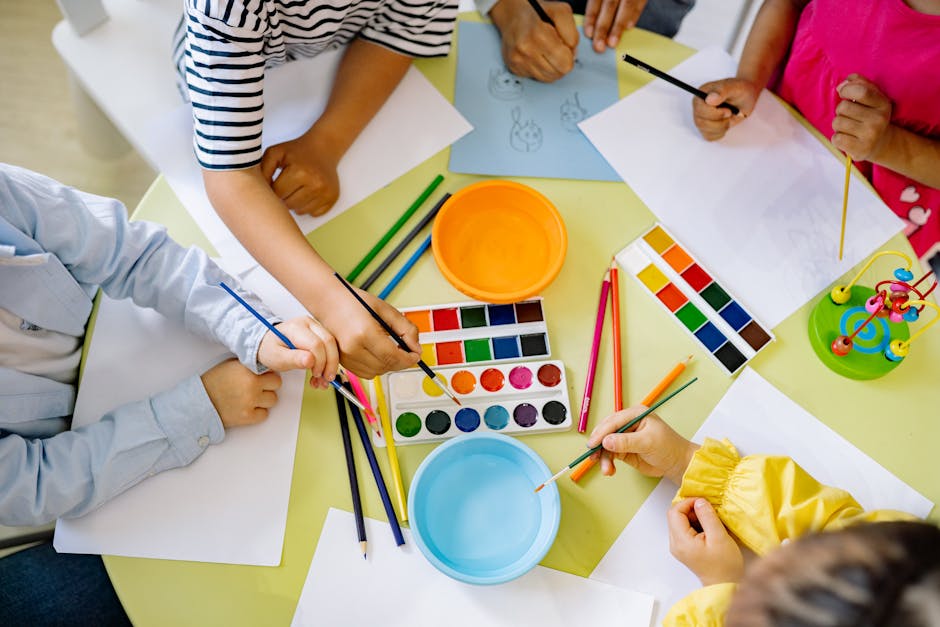The pursuit of hobbies and crafts is a deeply enriching experience, offering avenues for self-expression, creativity, and personal growth. Mastering these pursuits, however, is not merely about acquiring tools and following tutorials; it’s a journey of continuous learning and dedicated practice. This exploration delves into a multifaceted approach to skill development, examining diverse strategies that transcend the simplistic notions of “best” to offer a more comprehensive understanding.
A significant aspect of developing proficiency in any craft lies in understanding its underlying principles. Take, for example, pottery. Learning the properties of clay, the nuances of different glazes, and the techniques of shaping are foundational elements. This foundational knowledge forms the bedrock upon which advanced skills are built. A similar approach applies to knitting, where mastering basic stitch patterns paves the way for more intricate designs and projects. Therefore, initial investment in comprehending the fundamental concepts is crucial for subsequent skill enhancement.
A meticulously structured learning process is another key ingredient in the recipe for success. Instead of haphazardly jumping from project to project, a structured learning path provides a clear direction. For instance, an aspiring watercolor painter might start with basic color mixing, progressing gradually to techniques like layering, washes, and atmospheric perspective. This structured approach allows for a gradual refinement of skills, leading to a more solid understanding and more satisfactory results. Online courses, workshops, and mentorship programs often provide these structured pathways.
Beyond structured learning, active engagement with the craft is paramount. Hands-on practice is the engine that drives skill development. Regular practice, even for short durations, reinforces learned techniques and solidifies understanding. Frequent experimentation with different techniques and materials is encouraged. Trying diverse approaches, even if initially unsuccessful, can broaden your understanding and unlock hidden potentials. This constant engagement fosters a deeper connection with the craft and cultivates creativity.
Community engagement plays a significant role in the journey of skill development. Connecting with fellow enthusiasts offers invaluable opportunities for exchange and feedback. Workshops, clubs, and online forums provide platforms for knowledge sharing, technique refinement, and critical evaluation. The exchange of experiences, insights, and perspectives often sparks innovation and provides motivation to push boundaries. Seeking guidance from experienced practitioners can significantly accelerate your learning curve.
Furthermore, setting realistic goals is an important consideration. Instead of aiming for unattainable perfection immediately, it is beneficial to set incremental milestones. These goals can be as simple as completing a specific project or mastering a particular technique within a set timeframe. Celebrating accomplishments, regardless of their size, boosts motivation and encourages continued engagement. Adjusting goals based on progress and challenges is also an important aspect of this adaptive process.
Adaptability is crucial when dealing with unexpected challenges that often arise during the learning process. Unforeseen obstacles can arise in any craft. Flexibility is essential. Embracing mistakes as learning opportunities, rather than setbacks, fosters resilience and adaptability. It is through these challenges that true mastery is cultivated. Experimenting with alternatives and refining techniques based on setbacks is a hallmark of a dedicated and resourceful learner.
An essential component of skill development in crafts is embracing a growth mindset. This perspective is characterised by a belief in the ability to improve and learn from mistakes. This mindset recognizes that skill acquisition is an ongoing journey, not a destination. Celebrating the journey, acknowledging progress, and understanding that setbacks are opportunities for improvement are pivotal aspects of this mindset. Adopting a growth mindset is not only crucial for skill development, but also for fostering personal growth and resilience.
Finally, consider the value of patience. Mastering any craft requires time and dedication. Rapid advancement is not always the path to sustained success. Allowing ample time for practice, experimentation, and refinement will ultimately yield better results. Embrace the process, celebrate small victories, and trust the journey. Patience and persistence are often the most important tools in a hobbyist’s toolkit.
In conclusion, the path to skill development in hobbies and crafts is multifaceted and encompasses diverse approaches. It is a journey that blends structured learning, active engagement, community connection, realistic goal setting, adaptability, a growth mindset, and patience. By embracing these principles, individuals can unlock their creative potential, cultivate expertise, and derive immense satisfaction from their chosen crafts. The “best” way to develop skills is to adopt a holistic approach that acknowledges the unique combination of knowledge, practice, engagement, and self-belief.
